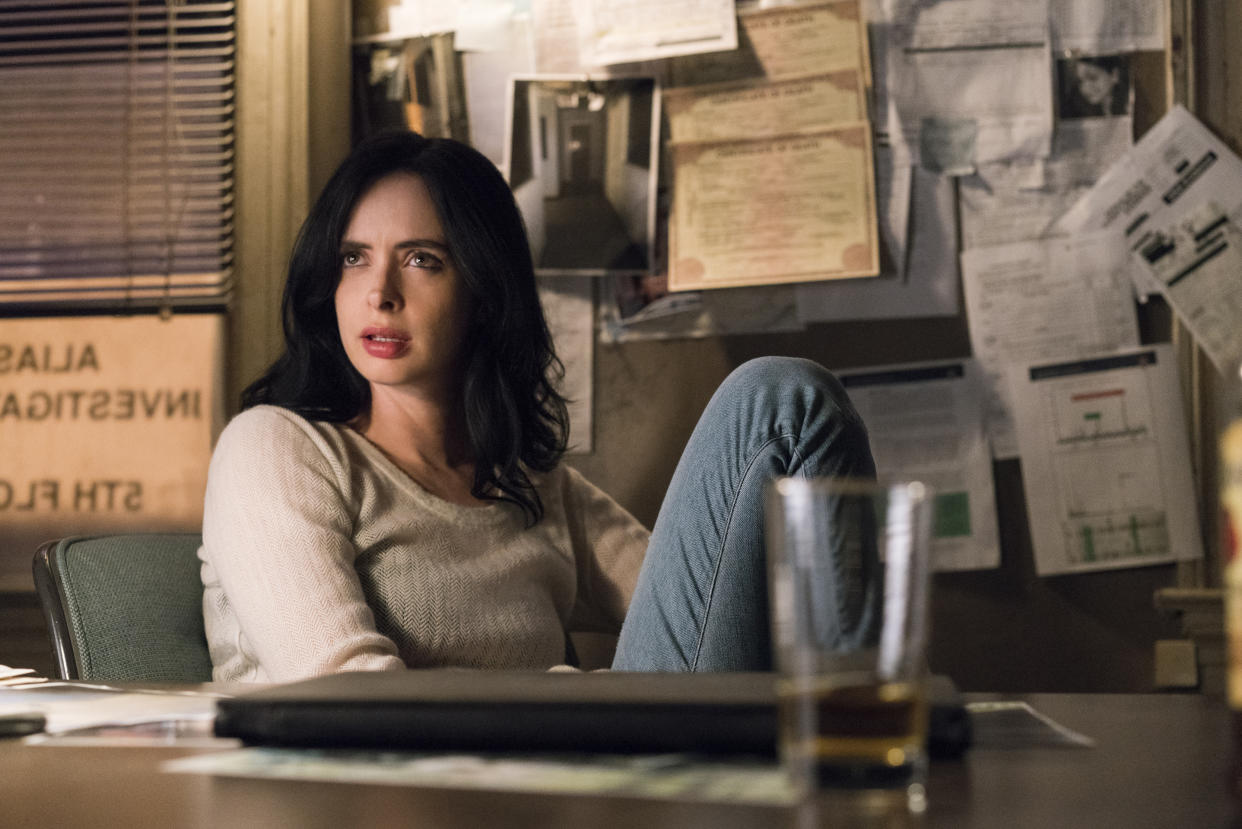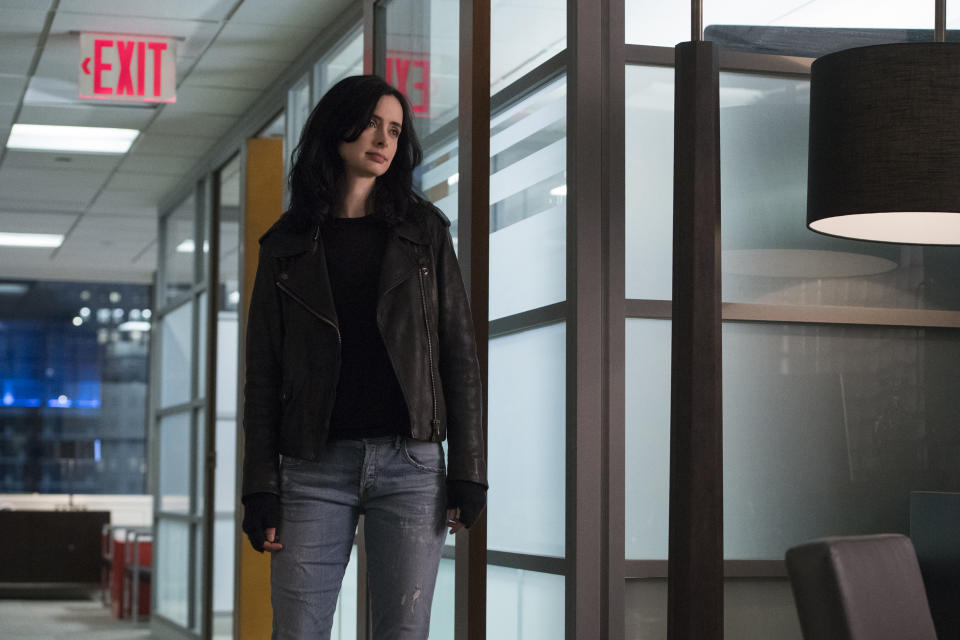'Jessica Jones' season two is a reminder we need more female-led superhero shows

For a long time women have been considered an afterthought in the superhero genre. Ever since Marvel and DC Comics characters transitioned to the screen, the stories of male heroes like Superman, Batman, Spider-Man and the Hulk have been revisited again and again while their female counterparts have barely had a solo outing.
Supergirl was the first solo female superhero to make it to the big screen and since its 1984 release there have only been three more in cinemas – Catwoman, Elektra and Wonder Woman – and the total number of female-led TV shows can be counted on one hand.
Marvel’s Jessica Jones came after the likes of Wonder Woman, Birds of Prey, Marvel’s Agent Carter and Supergirl, and its second season is a brilliant reminder of just why we need to make space for more female heroes who break the stereotype.
The aesthetic of Krysten Ritter’s Jessica completely contradicts the feminine standard set by these Marvel and DC women as well as others on screen; she wears weathered jeans, a hoodie, leather jacket and boots not revealing spandex and form-fitting suits like Black Widow or Agent Carter.
Ritter’s TV show has also provided an opportunity for superwomen to be as gritty, as dark and as pessimistic as male characters, like Blade, Wolverine and Batman, who have come before her. Even Jones’ dependency on alcohol is a game changer in the Marvel Cinematic Universe because never before has the issue been quite so acknowledged, despite the fact that Tony Stark is a well-known alcoholic in the comics.

The MCU has often glazed over the more socially aware themes and narrative elements of the literature much of its stories are based, especially more recent runs which present superheroes with as many flaws as they have powers. Hank Pym was brought to life in Ant-Man by Michael Douglas but the film left out the fact that he was abusive to his wife Janet Pym. Even through Mark Ruffalo’s Bruce Banner, the movies have failed to show how mentally ill he and his hulking green persona actually are.
That’s not the case for Jessica Jones; in her Alias comic run written by Brian Michael Bendis, she’s snarky, argumentative, impatient and aggressive; characteristics that have transferred to the TV show. Ritter continues to exhibit these personality traits in season two but we’re given a better understanding of where this attitude comes from, and, why she’s so reluctant to use her powers unlike fellow New York heroes Spider-Man and Daredevil.
All three gained their powers after freak accidents but neither Peter Parker or Matt Murdock developed post-traumatic stress disorder from the experience. They can remember what caused them to develop superhuman abilities, but Jessica can’t. She only has the patchy memories brought on by PTSD to help her find out who made her the way she is, and each new episode helps her get further towards the truth.
It’s as the season progresses we witness more of Jessica’s vulnerability and understand why she’s fighting against the superhero label; she sees herself as more of a monster than someone people can look up to. It’s exactly this complicated depiction of a superhero, combined with an atypical narrative, that has resonated with viewers and why season one is the most popular Marvel series currently on Netflix.
Season two will no doubt make the same sort of impact so why not give more female superheroes a chance to do the same? Iron Fist and Luke Cage has already introduced Colleen Wing and Missy Knight (AKA the Daughter of Dragon) to the MCU so they could easily lead their own show on the streaming service.
There’s also plenty more superwomen from the pages of Marvel Comics that could make their screen debut; Monet St Croix, She-Hulk, Riri Williams and Ms Marvel are just a few names that deserve their own show. It’s about time those in charge gave them the opportunity to.
READ MORE
Why ‘Tomb Raider’ avoided game’s controversial ‘attempted rape’ scene
What Nicolas Cage thinks about five of his most famous films
Sharon Horgan and ‘Flashpoint’ directors planning team up

 Yahoo Movies
Yahoo Movies 
